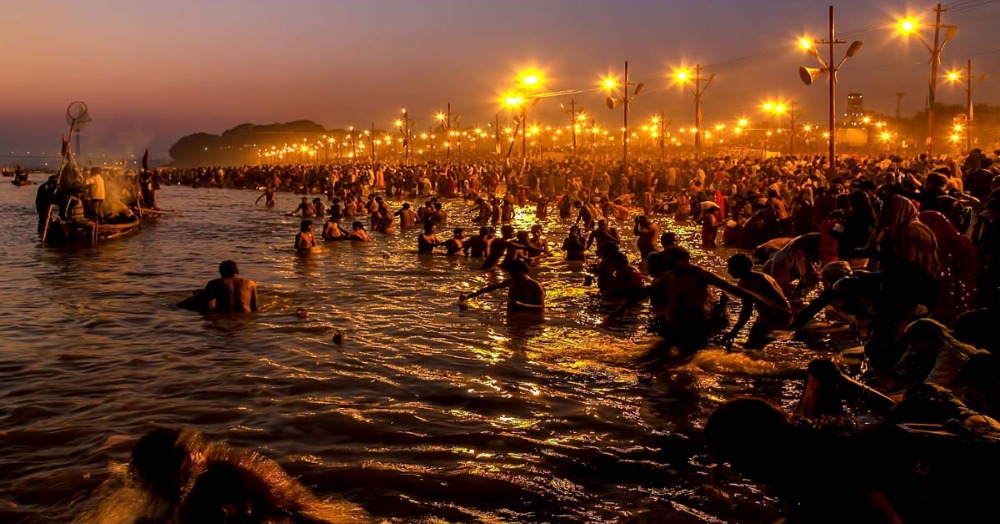
Given just the sheer number of people that are taken into account, India, as a country, is a force to be reckoned with. Our population is our biggest asset (which can sometimes feel like a liability if you happen to take the peak hour Mumbai locals on a shitty Monday morning), and we pride ourselves on our culture, in spite of all the differences we come across, as a community. Which is why it’s no wonder we make news and headlines around the world, especially when it comes to our cultural festivals.
It was a proud moment for Indians across the globe as our very own Kumbh Mela was inscribed into UNESCO’s Representative List of Intangible Cultural Heritage Of Humanity in 2017.
Held in Allahabad, Ujjain, Haridwar, and Nashik, the Kumbh Mela is known as the largest peaceful congregation of pilgrims in the world, where devotees bathe or a take a dip in the sacred river, signifying the washing away of sins and being liberated from the cycle of life and death.
The decision to inscribe the Kumbh Mela onto the Representative List was taken during its 12th session held at Jeju, South Korea from 4-9 December. This is the third inscription in two years, after ‘Yoga‘ and ‘Navroz’ being enlisted previously.
In a statement, The Ministry of External Affairs (MEA) said the inscription of ‘Kumbh Mela’ in the list was undertaken following the recommendation by an expert body which examines nominations submitted by member countries of the UNESCO.
“The element is compatible with existing international human rights instruments since people from all walks of life, without any discrimination, participate in the festival with equal fervor. As a religious festival, the tolerance and inclusiveness that Kumbh Mela demonstrates are especially valuable for the contemporary world,” the MEA note commented, as mentioned by The Economic Times.
The festival, held every four years, by rotation, is attended by millions of devotees, not just from around the country, but across the world. It encompasses astrology, the science of astronomy, spirituality, social and cultural customs and practices, and ritualistic traditions, making it extremely rich in knowledge.
Right after UNESCO’s declaration of including the Kumbh Mela on the cultural heritage list, Prime Minister Narendra Modi tweeted saying that it’s “a matter of immense joy and pride for India”.
What a proud moment for India, indeed!